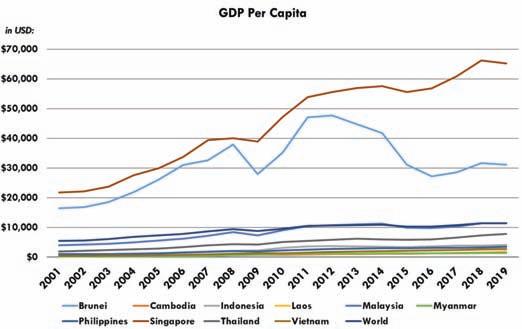p. 1 nov20:_cover, inside, back.qx 10/15/20 10:23 AM Page 1
GGB Global Gaming Business Magazine
&
GAMING IN SOUTHEAST ASIA THE SANDS BY DAVID SCHWARTZ DOWNTOWN’S DEREK STEVENS OUTSIDE EYES
November 2020 • Vol. 19 • No. 11 • $10
Young Restless Emerging Leaders of Gaming
40 Under 40 ready to take on the world
Electronic Messengers
Why digital marketing is the wave of the future
Competitive Fire Sports betting companies go head-to-head Association of Gaming Equipment Manufacturers




